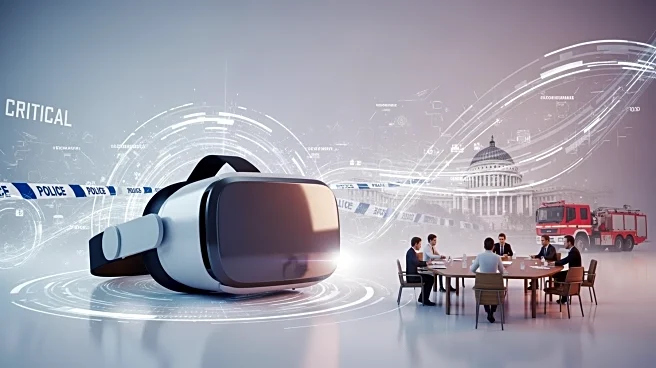What's Happening?
Experiential marketing is becoming increasingly valuable for tech brands, offering unique opportunities to build trust and engage consumers. As digital saturation grows, consumers are seeking tangible,
real-world experiences. Experiential marketing allows tech companies to demonstrate product benefits in engaging ways, overcoming barriers such as complex product information and high-value purchase considerations. Examples include Microsoft's 'Creators Lab' at the Super Bowl and Meta Quest 3's VR pop-ups. These initiatives provide hands-on experiences that foster consumer trust and brand loyalty.
Why It's Important?
In an era where digital interactions dominate, experiential marketing provides a crucial touchpoint for tech brands to connect with consumers on a personal level. This approach helps demystify complex technologies and builds consumer confidence, which is essential for high-value tech products. By creating memorable experiences, tech brands can differentiate themselves in a crowded market, fostering brand loyalty and advocacy. This strategy is particularly effective for brands transitioning to subscription models, where long-term consumer commitment is vital.
Beyond the Headlines
Experiential marketing not only enhances consumer engagement but also supports broader business objectives such as partnership development and ecosystem growth. Events like Salesforce's 'Dreamforce' demonstrate the power of in-person interactions for building business relationships. As tech brands continue to evolve, experiential marketing will play a key role in bridging the gap between digital and physical consumer experiences, driving innovation in how brands communicate and connect with their audiences.









